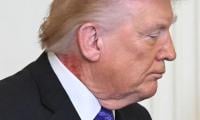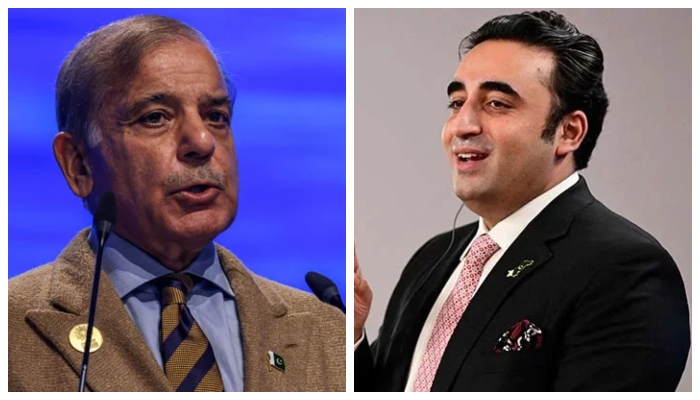Diplomatic A game
Pakistan’s past diplomatic failures often stemmed from internal disunity and reactive policymaking
In the aftermath of Indian military aggression and the fragile ceasefire that followed, Pakistan has moved swiftly – and wisely – to launch a full-scale diplomatic offensive. Prime Minister Shehbaz Sharif’s decision to dispatch a high-level delegation led by PPP Chairman Bilawal Bhutto-Zardari to key global capitals is a long-overdue demonstration of proactive, strategic diplomacy. This is precisely the sort of assertive global engagement Pakistan has needed in the face of India’s belligerence. The delegation – comprising seasoned political and diplomatic figures such as Dr Musadik Malik, Khurram Dastgir Khan, Sherry Rehman, Hina Rabbani Khar, Senator Faisal Sabzwari, former foreign secretary Tehmina Janjua, and veteran diplomat Jalil Abbas Jilani – is tasked with presenting Pakistan’s position not only on India’s recent aggression but also on broader, longstanding concerns. Chief among these is the unilateral suspension of the Indus Waters Treaty by India, a grave violation of international law that threatens regional stability and Pakistan’s water security.
This move is strategic, a clear signal that Pakistan will no longer be a passive observer in the face of Indian disinformation campaigns and cross-border hostilities. In its typical theatrics, India has announced its own set of delegations, including prominent names like Shashi Tharoor, to spin its version of the conflict across the West. But this time, Pakistan is playing an A+ diplomatic game, armed not just with rhetoric but with evidence – dossiers, satellite imagery, and testimonies – exposing India’s support for terrorism in Pakistan and its false flag operations in Indian Illegally Occupied Jammu and Kashmir (IIOJK). What strengthens Pakistan’s case is the moral high ground it has maintained. In contrast to India’s naked aggression, Pakistan’s response has been measured, focused on de-escalation and peace, even when provoked. Prime Minister Modi’s government may have expected to dominate the narrative, but Islamabad has wisely flipped the script, showing restraint on the battlefield while charging ahead on the diplomatic front.
Bilawal’s role deserves special mention. Just days before the conflict, he opposed the federal government’s ill-advised plan to divert Indus waters to Cholistan – a proposal that was later scrapped, in large part due to his principled stance. That same voice was then seen firmly countering Indian propaganda on global media, articulating Pakistan’s position with poise and clarity. His dual role – holding his own government accountable domestically, while defending it internationally – is the nuance that Pakistan’s politics must embrace. It is also encouraging to see seasoned diplomats like Hina Rabbani Khar, Sherry Rehman and Jalil Abbas Jilani involved. Their expertise and credibility will strengthen Pakistan’s case in global capitals like Washington, London, Paris and Brussels. However, the government would do well to take note of one shortcoming: the lack of broader representation from provinces like Khyber Pakhtunkhwa and Balochistan – regions that have borne the brunt of Indian-sponsored terrorism. Their inclusion would have strengthened the delegation both symbolically and substantively.
Pakistan’s past diplomatic failures often stemmed from internal disunity and reactive policymaking. But this moment offers a rare alignment: political consensus, military success and international attention. The presence of Foreign Minister Ishaq Dar in China further signals Islamabad’s intention to build a global coalition to expose what can now be called Modi’s international terror doctrine. This is not the time to sit idle. Pakistan must sustain this diplomatic momentum, consolidate international support, and ensure the world sees beyond India’s polished propaganda. A ceasefire may have paused the conflict, but the battle for narrative dominance is far from over.
-
 Eamonn Holmes Claims Ex Ruth Langsford 'painted Him As Villain' In Her New Book
Eamonn Holmes Claims Ex Ruth Langsford 'painted Him As Villain' In Her New Book -
 Musk's X, XAI Settle $17.5bn Debt Early, Investors Take Notice
Musk's X, XAI Settle $17.5bn Debt Early, Investors Take Notice -
 King Charles’ Working Himself ‘into An Early Grave’ As Calamity Threatens Monarchy: ‘He’s Losing Allies’
King Charles’ Working Himself ‘into An Early Grave’ As Calamity Threatens Monarchy: ‘He’s Losing Allies’ -
 Elderly Mom Of Nancy Guthrie’s Kidnapping Suspect Tells Story Of Six-hour Long Raid On Her Home
Elderly Mom Of Nancy Guthrie’s Kidnapping Suspect Tells Story Of Six-hour Long Raid On Her Home -
 Taylor Swift Displays 'Elizabeth Taylor' Cover Art Before Record Store Day Vinyl Release
Taylor Swift Displays 'Elizabeth Taylor' Cover Art Before Record Store Day Vinyl Release -
 AI Is Changing Academic Research And Surpassing PhD Scholars–Here’s How
AI Is Changing Academic Research And Surpassing PhD Scholars–Here’s How -
 Blood Moon 2026: Best Viewing Tips, Timing, And Locations For Tonight’s Eclipse
Blood Moon 2026: Best Viewing Tips, Timing, And Locations For Tonight’s Eclipse -
 Princess Beatrice, Eugenie Are Wondering About Andrew, Sarah’s History: ‘How Can They Be So Stupid’
Princess Beatrice, Eugenie Are Wondering About Andrew, Sarah’s History: ‘How Can They Be So Stupid’ -
 Watch: Luke Thompson Teach Jimmy Fallon A Romantic Bridgerton Dance
Watch: Luke Thompson Teach Jimmy Fallon A Romantic Bridgerton Dance -
 Kesha Criticizes Donald Trump For Using Her Song In TikTok Video: 'Disgusting'
Kesha Criticizes Donald Trump For Using Her Song In TikTok Video: 'Disgusting' -
 Experts Say Social Media Age Checks Risk Security And Privacy
Experts Say Social Media Age Checks Risk Security And Privacy -
 From Aspirin To Cream: White House Links President Trump’s Neck Rash To ‘preventative’ Skin Treatment
From Aspirin To Cream: White House Links President Trump’s Neck Rash To ‘preventative’ Skin Treatment -
 ChatGPT Or ‘QuitGPT’? OpenAI’s App Uninstall Rate Jumps 295 Percent After Pentagon Deal
ChatGPT Or ‘QuitGPT’? OpenAI’s App Uninstall Rate Jumps 295 Percent After Pentagon Deal -
 Angelina Jolie, Louis Garrel's Relationship Status Finally Revealed
Angelina Jolie, Louis Garrel's Relationship Status Finally Revealed -
 Royal Family Vs Taxpayers: Andrew’s Donation To Virginia Giuffre’s Charity As MP Questions
Royal Family Vs Taxpayers: Andrew’s Donation To Virginia Giuffre’s Charity As MP Questions -
 OpenAI’s Sam Altman Calls Pentagon Deal ‘opportunistic And Sloppy’ Amid Backlash; Seeks Further Amendments
OpenAI’s Sam Altman Calls Pentagon Deal ‘opportunistic And Sloppy’ Amid Backlash; Seeks Further Amendments




